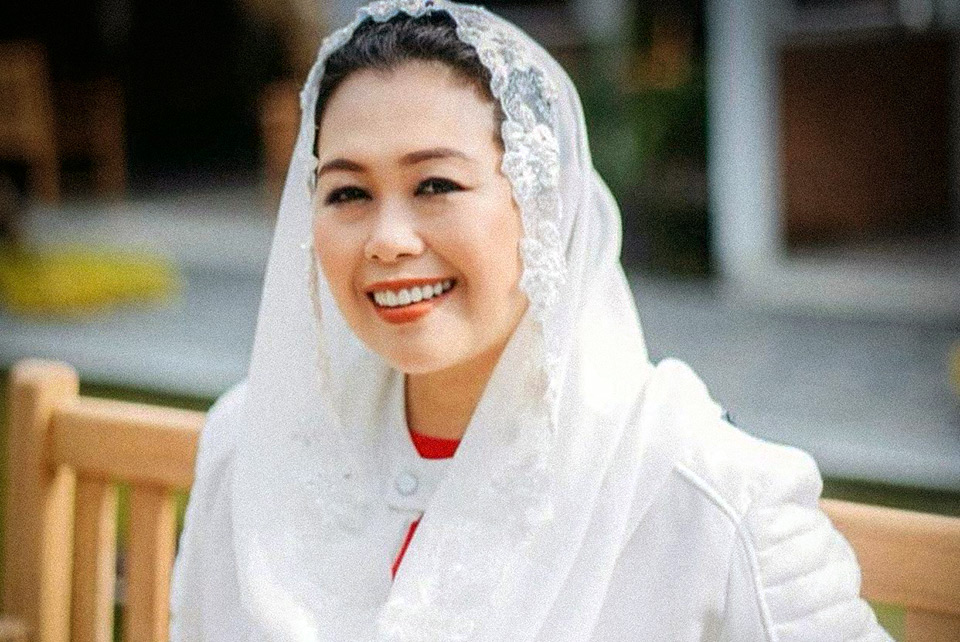In the words of Yenny Wahid: “Exposure to different perspectives, religious beliefs and backgrounds is key to foster a culture of tolerance”
Indonesian social and political activist Yenny Zannuba Wahid leads the Jakarta-based NGO Wahid Foundation, established with her late father, former Indonesian President Abdurrahman Wahid, in 2004. The organization has been working to support peace and foster interreligious dialogue to counter violent extremism. In 2017, the Wahid Foundation developed the Peace Village initiative jointly with UN Women, which brings together women from diverse backgrounds to create peace through dialogue in communities affected by violent extremism. Since its launch, 10 village leaders across Indonesia have committed to pilot the concept.Date:

The Peace Village initiative was born with the aim to build peace and create tolerance by empowering people at the local level, one village at a time. We believe it is important that ideas on how to realize peace and promote social cohesion come directly from villagers and those with local knowledge and wisdom.
Top-down approaches rarely work: when we operate on the ground, we work closely with local women and men to foster a sense of ownership towards the programmes we introduce and help them understand how these can benefit them in the long run. You must understand the local dynamics and nuances if you want to create a paradigm shift.
We do not ask women to erase all differences; rather, we encourage them to see their diversity and understand it.
The Peace Village initiative also places a special focus on the role women play in creating peace within communities, especially at the grassroots level. Women are the ones who shape the dynamics within the family and, in turn, also influence the wider community. While men are usually more prominent on social and political stages, women’s work happens ‘behind the scenes’, where they influence how things are navigated and managed. For example, they influence how money is spent, make decisions concerning children’s upbringing and education as well as other household matters, and they bring the family together.
So, it is with this in mind that we’ve come up with a series of programmes and activities at a village level, targeting women in particular. For example, we run programmes that enable women to come in contact with others within their community from different backgrounds, so that they become exposed to different perspectives, religious beliefs, ethnicities and nationalities. This is key to develop a culture of tolerance and social cohesion.
We do not ask women to erase all differences; rather, we encourage them to see their diversity and understand it. This is achieved mainly through dialogue: we provide a platform for women to share their stories, and what comes out of this is usually an understanding that we are actually not that different, that there’s more uniting us than dividing us. Despite my birthplace, ethnicity or religion, I too want my children to go to school and get an education, I too want to have a happy life and I too want peace.
We also encourage women and men joining our programmes to sample different social activities, both within and outside their villages. For example, we ask village heads to let women join townhall meetings, which take place regularly to discuss village issues and are usually attended by men. At first, the women in attendance are very shy, withdrawn – but soon they start to find their voice. It is amazing to see how they become empowered: these activities help women understand that they do have rights, and that they can use them to influence local polices and decisions. It’s a win-win situation: by allowing women into the village forum, village heads relish the increased level of democracy in local decision-making processes and women find the courage and voice to influence processes within their communities, benefiting the wider society.
To use a metaphor, communities are like baskets: when we understand and respect each other, our social connections become interweaved and we become stronger. We can hold more things; we can lift our whole community up and create lasting peace. We need more peace-minded people to come together if we want to build a better society.”